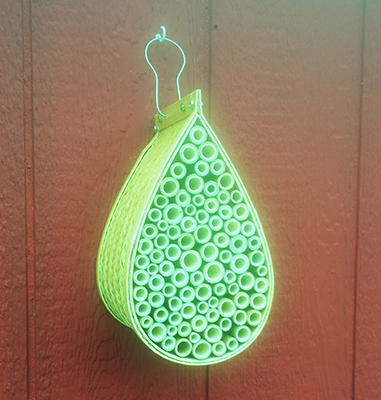
The news has been buzzing about the decline of our bee populations, and the dramatic consequences their loss could have globally.
Bees are invaluable pollinators when it comes to the crops that feed human appetites. In fact, 70 out the top 100 food crops are pollinated by bees. Although honey bees are typically what one thinks of when referring to bees, they’re actually a non-native European species. Here in Colorado however, we have nearly 900 species of native bees – many of which are far better pollinators than the honey bees.
The blue mason bee, which is native to nearly all of North America, can pollinate an entire acre of fruit trees with a mere 250 bees. If honey bees tried to pollinate the same acreage, they would need one complete colony (around 30,000-60,000 bees).
Squash bees are the most effective pollinator for squash flowers and are the only flowers these bees will visit. For those of us who grow tomatoes and peppers in our gardens, bumble bees should be a welcomed visitor. These gentle giants are the only bee species that frequently visit flowers – helping to ensure a bountiful harvest.
Below are simple steps we all can take in order to help support and protect our native bees in our own backyards.
They’ll pack these tunnels with food they’ve gathered, along with their eggs, which hatch, grow and mature into adult bees within the tunnel. We can help provide habitat for these bees in our own yards by leaving areas of bare, undisturbed soil for ground nesting species, or by hanging up a bundle of bamboo or a block of wood with 1/16”-1/4” holes drilled into it.

Many times home owners assume a pest is terrorizing their plants, when all that’s taken place is the next generation of bees are being produced. The limited damage to our plants will not harm them overall, and allowing the bees to take a small portion of the plant helps ensure their young will be around in the coming year.
For more information on what you can do to help protect our native bees visit: